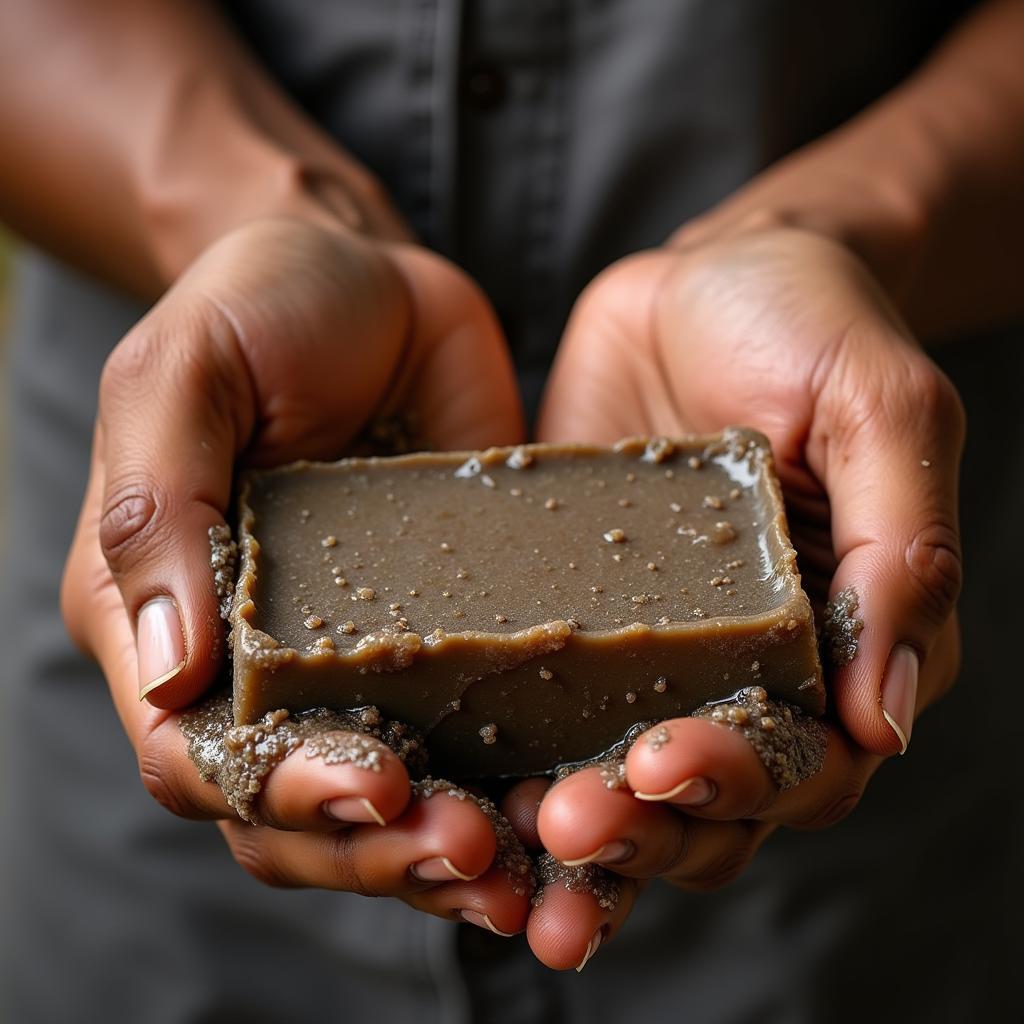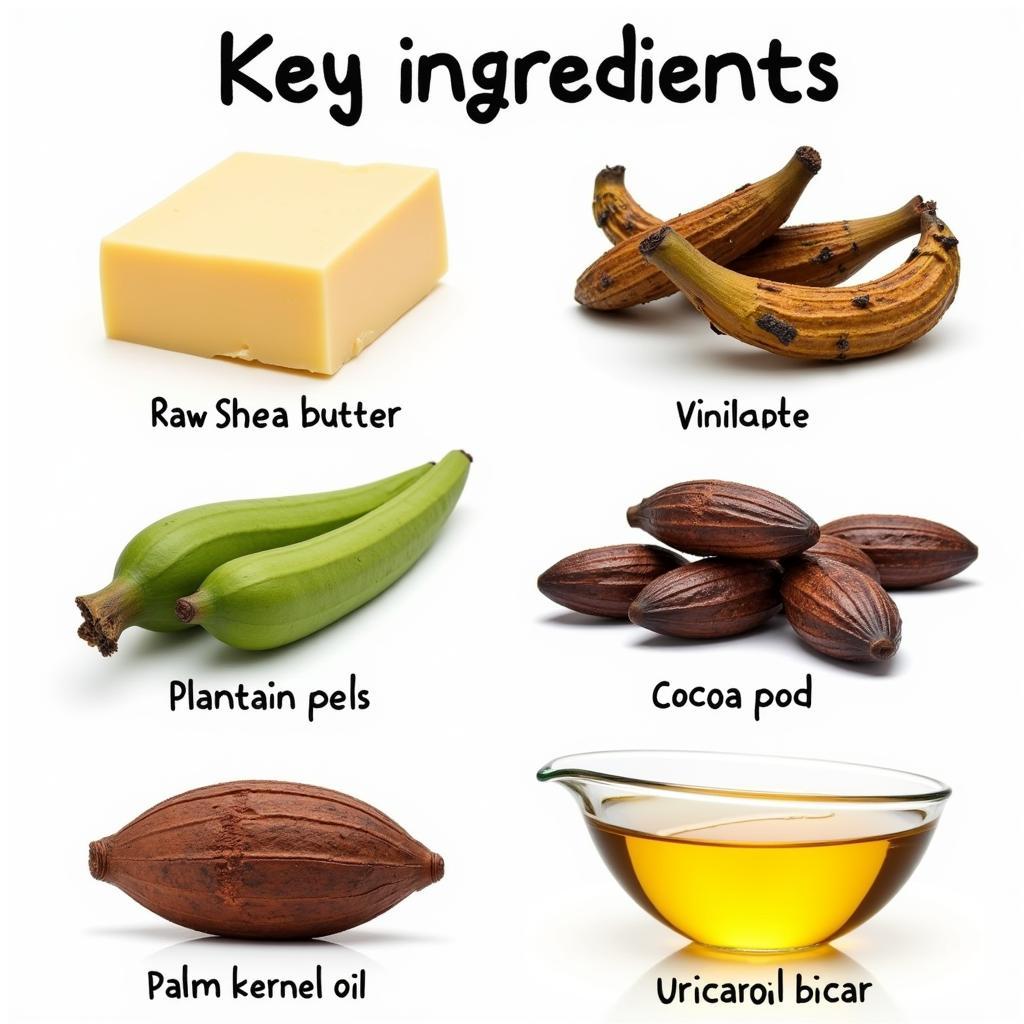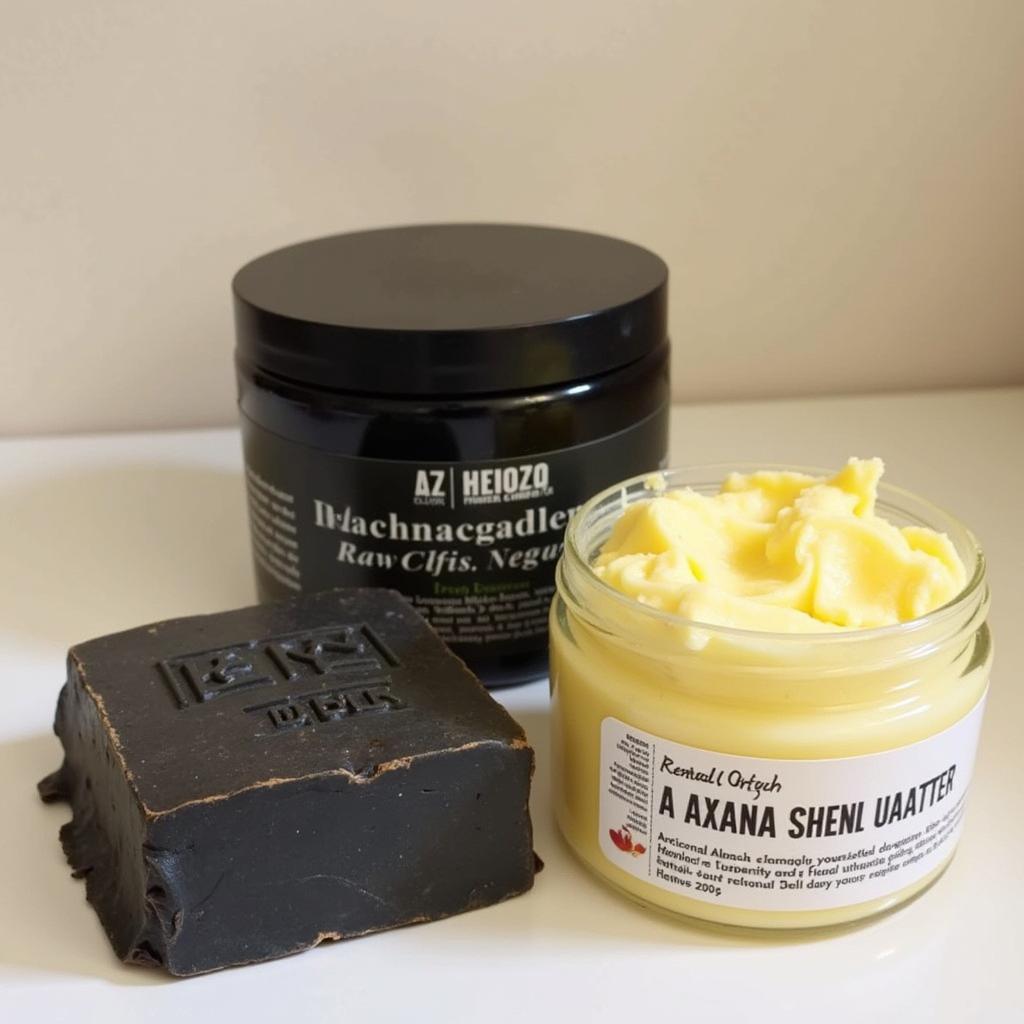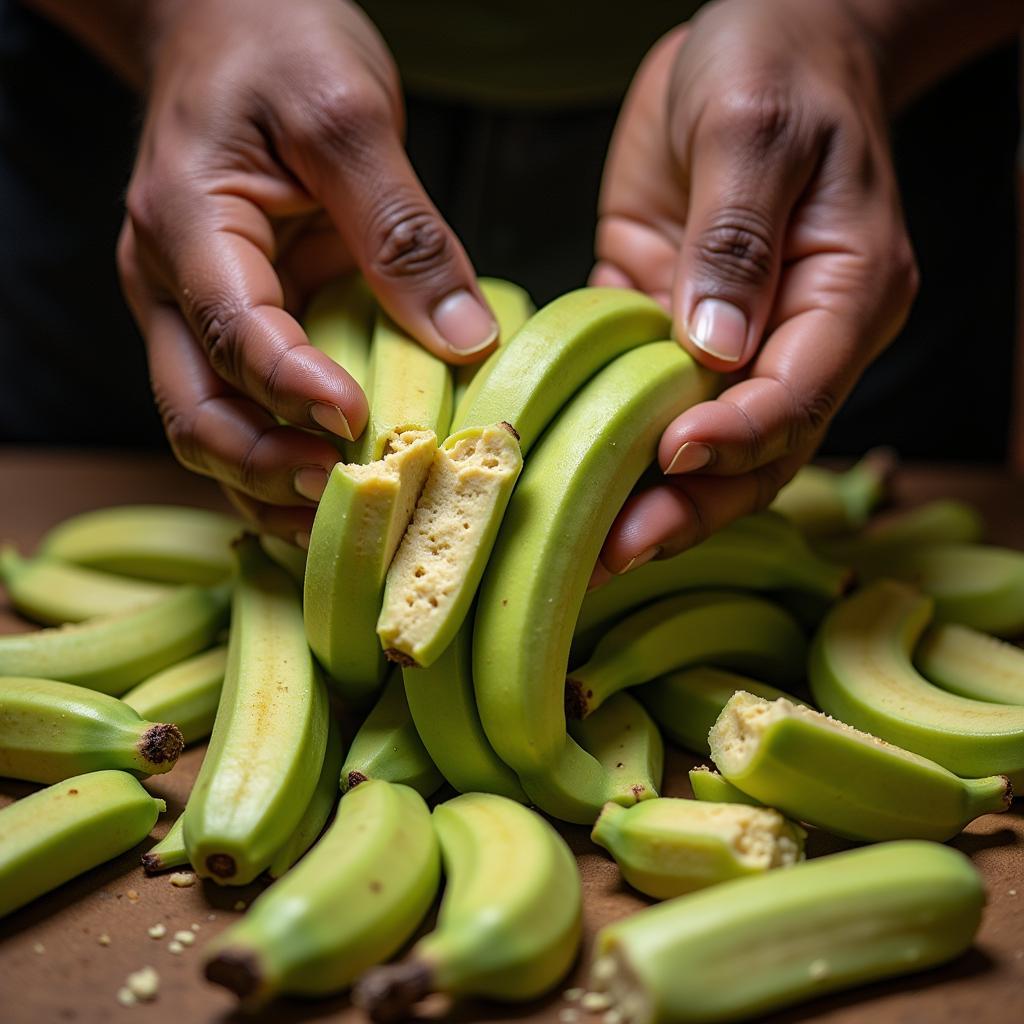African Black Soap for Dark Marks: A Comprehensive Guide
African Black Soap For Dark Marks has gained immense popularity as a natural remedy. This article delves into the origins, benefits, and usage of this traditional African cleanser, exploring its effectiveness in fading dark marks and achieving clearer, healthier skin. Learn how to incorporate this potent ingredient into your skincare routine for optimal results.
Understanding African Black Soap
African black soap, unlike its name suggests, is not always black. Its color can range from dark brown to a lighter beige, depending on the ingredients and production methods. This soap is traditionally handmade in West Africa, particularly in countries like Ghana, Nigeria, and Togo, using locally sourced ingredients. Its primary components typically include plantains, cocoa pods, palm kernel oil, shea butter, and sometimes other botanicals. The process involves sun-drying and roasting the plant matter, then combining it with ashes from burnt plantain leaves or other plants to create a potent alkaline cleanser.
Early in its usage, African black soap became known for its ability to address various skin concerns. Communities realized its potential to soothe irritations, reduce blemishes, and potentially improve the appearance of dark marks. Today, it is recognized and used globally for its potential benefits. After this initial introduction to African communities, the soap gradually spread across the continent and eventually beyond, becoming a sought-after natural skincare product worldwide.
You can find more about the benefits of dark skin tones at african dark skin.
The Science Behind African Black Soap for Dark Marks
Dark marks, also known as hyperpigmentation, occur when the skin produces excess melanin. This can result from various factors, including acne, sun exposure, inflammation, and hormonal changes. African black soap contains several properties that may contribute to fading dark marks. The soap’s high alkalinity helps to exfoliate dead skin cells, revealing fresh, brighter skin underneath. This exfoliation process can help to diminish the appearance of dark spots over time.
Furthermore, the natural ingredients in African black soap offer additional benefits. Shea butter, for example, is known for its moisturizing and healing properties, which can support skin regeneration and improve overall skin tone. Other botanicals often included in the soap, such as aloe vera and chamomile, may also contribute to reducing inflammation and promoting skin healing. The combined action of these ingredients makes African black soap a promising natural solution for addressing dark marks.
How to Use African Black Soap for Dark Marks
To maximize the effectiveness of African black soap for dark marks, it’s essential to use it correctly. First, lather a small amount of the soap in your hands or a washcloth. Gently massage the lather onto your face or other affected areas in circular motions for about 30 seconds. Avoid scrubbing too harshly, as this can irritate the skin.
Rinse thoroughly with lukewarm water and pat your skin dry with a soft towel. Follow up with a moisturizer to hydrate and protect your skin. It’s crucial to choose a moisturizer that complements the soap and suits your skin type.
 Lathering African Black Soap
Lathering African Black Soap
For optimal results, use African black soap two to three times per week. Overuse can strip the skin of its natural oils and lead to dryness or irritation. It’s also essential to perform a patch test before using the soap on a larger area of your skin, especially if you have sensitive skin. This will help to determine if you have any allergies or sensitivities to the ingredients.
Choosing the Right African Black Soap
Not all African black soaps are created equal. When choosing a soap for dark marks, look for authentic, unrefined versions that are free from artificial fragrances, colors, and preservatives. These additives can irritate the skin and potentially worsen dark marks. Opt for soaps made with natural ingredients and traditional methods to ensure you’re getting the full benefits.
 Authentic African Black Soap Ingredients
Authentic African Black Soap Ingredients
If you’re interested in exploring more natural remedies for back acne, you might find helpful information in our article on african black soap for back acne. Also, consider adding nourishing African body oil to your routine. You can learn more about it here: african body oil.
Combining African Black Soap with Other Remedies
African black soap can be combined with other natural remedies to enhance its effectiveness in fading dark marks. Consider incorporating ingredients like shea butter, aloe vera, or honey into your skincare routine. Shea butter provides deep hydration and can help to even out skin tone. Aloe vera soothes inflammation and promotes healing, while honey has antibacterial and moisturizing properties.
“In my experience, combining African black soap with shea butter creates a powerful synergy for addressing dark marks. The soap cleanses and exfoliates, while the shea butter deeply nourishes and promotes healing,” says Dr. Abena Osei, a renowned dermatologist specializing in natural skincare from Accra, Ghana. This combined approach can help to address the underlying causes of hyperpigmentation and support the skin’s natural healing process.
 African Black Soap with Shea Butter
African Black Soap with Shea Butter
Learn more about incorporating shea butter with African black soap in our african black soap and shea butter regimen article.
Conclusion
African black soap for dark marks offers a natural and potentially effective way to improve skin clarity and even out skin tone. By understanding how to choose and use the soap correctly, you can harness its power to achieve healthier, more radiant skin. Remember to prioritize authentic, unrefined versions and incorporate them into a consistent skincare routine for optimal results. African black soap can be a valuable addition to your journey toward achieving clearer, more even-toned skin. For more insights on skin lightening and the potential risks associated with some practices, refer to our article on african bleaching cream.
FAQ
- How often should I use African black soap for dark marks? Two to three times per week is generally recommended.
- Can African black soap be used on all skin types? A patch test is recommended, especially for sensitive skin.
- Is African black soap effective for all types of dark marks? Results may vary depending on the cause and severity of the dark marks.
- What are the key ingredients in authentic African black soap? Plantains, cocoa pods, palm kernel oil, shea butter, and sometimes other botanicals.
- How long does it take to see results with African black soap? It may take several weeks of consistent use to notice significant improvement.
- Can I use African black soap with other skincare products? Yes, but avoid harsh chemicals or products that can dry out the skin.
- Where can I buy authentic African black soap? Look for reputable online retailers or specialty stores.
“The key to successful skincare is consistency and understanding your individual skin needs. African black soap can be a valuable tool, but it’s important to use it wisely and as part of a holistic approach,” adds Dr. Kofi Annan, a traditional herbalist from Kumasi, Ghana, known for his expertise in natural remedies.
For further assistance or inquiries regarding African black soap or any other skincare concerns, please contact us:
Phone: +255768904061
Email: kaka.mag@gmail.com
Address: Mbarali DC Mawindi, Kangaga, Tanzania
We have a 24/7 customer support team ready to assist you.

